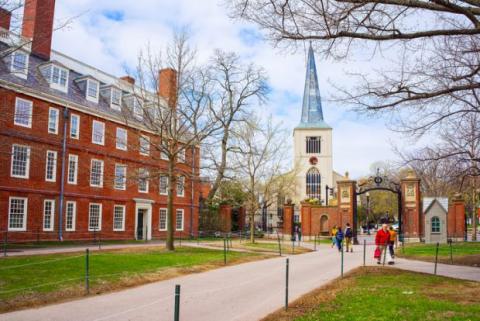The Ivy League group of universities in the USA – Brown University, Columbia University, Cornell University, Dartmouth College, Harvard University, the University of Pennsylvania, Princeton University and Yale University – and the universities of Cambridge and Oxford in the UK are among the most reputable universities in the world. Many students deciding to apply to one of these institutions will have dreamed for years of gaining a place at one of these universities. Unlike most universities, these have their own unique quirks in the process.
Oxbridge
The University of Oxford and the University of Cambridge are the two oldest and wealthiest universities in Britain. You may have an idea in mind of what they are looking for in a candidate, shaped by media coverage. Rest assured, the admissions teams are looking for applicants who are, regardless of background and education, the best and brightest. Rigorous procedures are in place to whittle down applicants while allowing those with potential to rise to the top. It is potential they seek, along with a passion for a subject.
When it comes to Oxbridge, the first difficult decision is choosing between the two. You can’t apply to both. Once you have made your choice, it’s time to look into the colleges. A collegiate system operates at both universities, with differing admissions requirements, admissions tests, interviews and possibly essays.
Shortlist those you believe to fit your needs and research everything about the colleges. If you are able to attend an open day, make the most of the opportunity. Speak with admissions staff and current students to form a well-informed opinion on your options, and visit the faculty to hear more about the courses on offer.
Alternatively, if this is something you are unable to do, email the admissions officer with any questions that you might have.
While preparing, think about relevant work placements open to you that could bolster your application. These help to demonstrate your commitment to the field and a proactive approach to the world of work. Additionally, wider reading and the ability to draw upon it during the interview stage can help set you up for success.
The first test is the relevant subject admissions test, which is online and will need to be completed in advance. It is possible to practise for these tests, and William Clarence would recommend doing so in advance. Some applications will also require the completion of essays.
The final, and arguably most important, part of your application will be a personal statement – a 500-word opportunity to convince admissions tutors that you have a passion for a particular subject, drawing together all previous academic and work experience, extracurricular hobbies (relevant to the course) and long-term goals.
Together with an academic reference from your school, you are ready to submit your application through the UCAS website.
Reflections from a University of Oxford foundation year student
Tips for acing your Oxford interview
How to craft the perfect application for US universities
Applying through Ucas as an international student
Top tips for writing an original personal statement
The Ivy League
A collective of eight top-tier colleges in the north-east of the US, the Ivy League are the most prestigious colleges in America. Together, these eight schools received more than 300,000 applicants for the Class of 2020, and the average acceptance rate was 7 per cent.
Like any other university application, it’s best to begin early. Unlike UK applications, applications in the US are done individually, with a student writing multiple admissions essays to each. Admissions offices are looking at a far wider picture of the applicant and their interests than in the UK. Extracurricular activities are very important, as are volunteering and work experience. The essays are the first opportunity to show off who you really are, beyond the grades. While the essay prompts will change each year, what they look for will remain the same.
With so many applicants from around the world, all Ivy League schools rely on standardised testing to compare students. Achieving high scores in the SAT or the ACT is vital in ensuring that your application gets through to the next stage. You may wish to seek professional support in preparation for these tests to ensure that you have the best chance of success. You are able to repeat the tests and should do so to become familiar with them.
What’s the difference?
The main difference between applying in the UK and in the US is the way in which you choose the area of study. While applicants to Oxbridge will apply for certain subjects, those in the US will select an area that they would like to major in but it isn’t necessary to make a final decision until after joining.
Oxbridge is all about why a student wants to study a subject, how they show their interests and knowledge. Ivy League applications are individual to each university. They focus more on what the student has to offer by the way of academic prizes and extracurricular involvement just as much as their GPAs.
All 10 universities have their advantages, and no matter which you choose, they’ve earned their reputation through historic and modern academic achievements.
Read more: 7 tips for applying to top universities in England and the United States

Comments